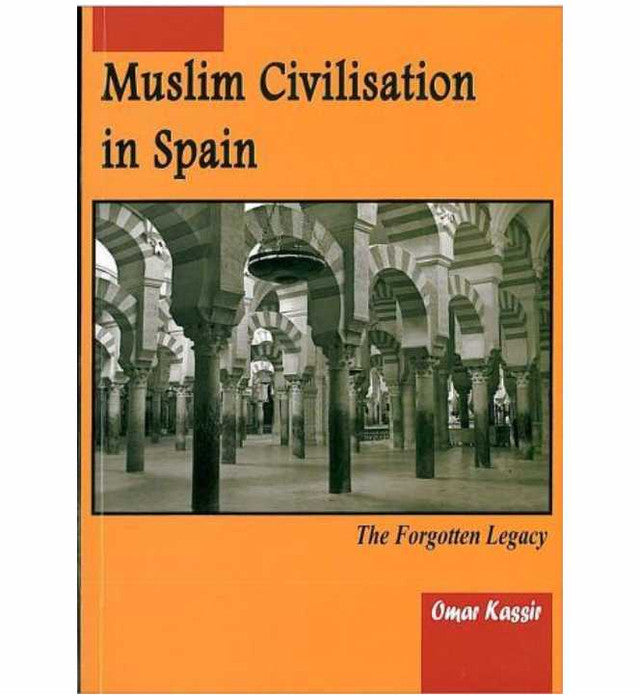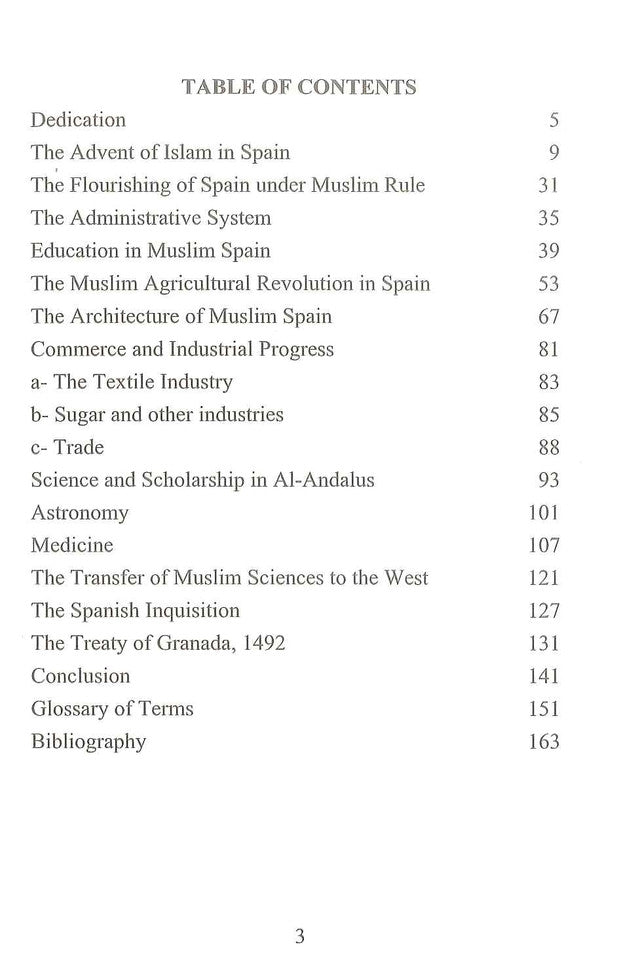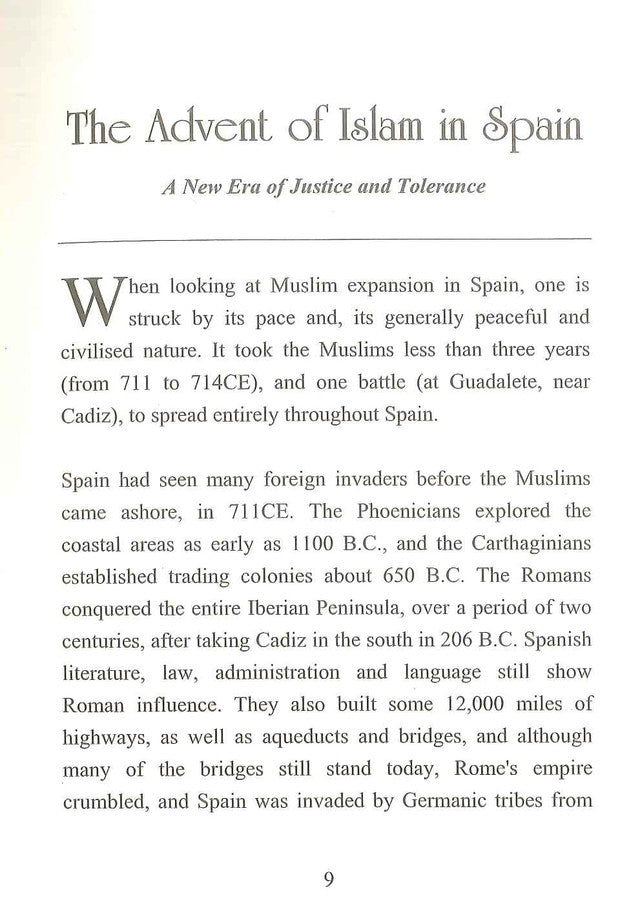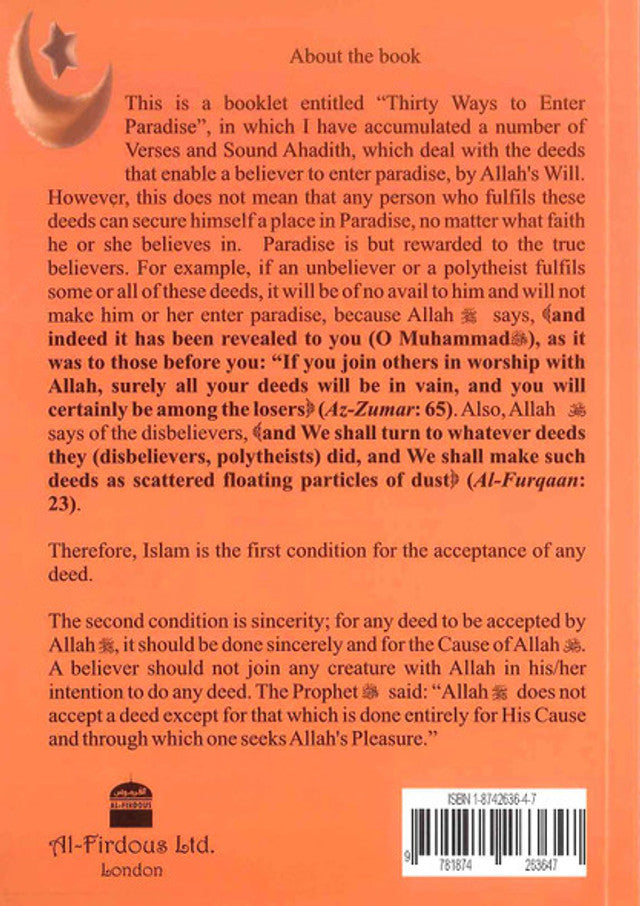Muslim Civilisation In Spain by Omar Kassir
Muslim Civilisation In Spain by Omar Kassir
Publisher:
Al Firdous LTD
Author:
Dr. Ali Muhammad As-Salabi
Language:
English
Binding:
Paper back
Pages: 164
Size: A5 |5.8 x 8.3 in| 14.8x 21 cm
Couldn't load pickup availability
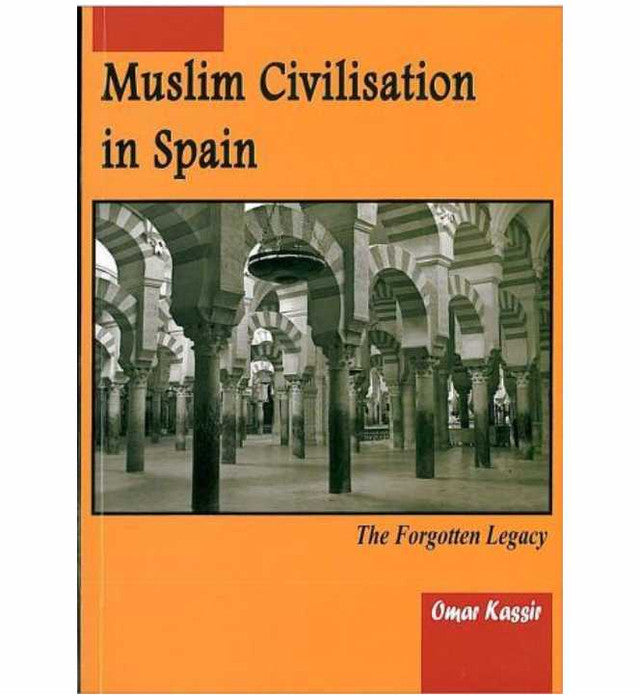
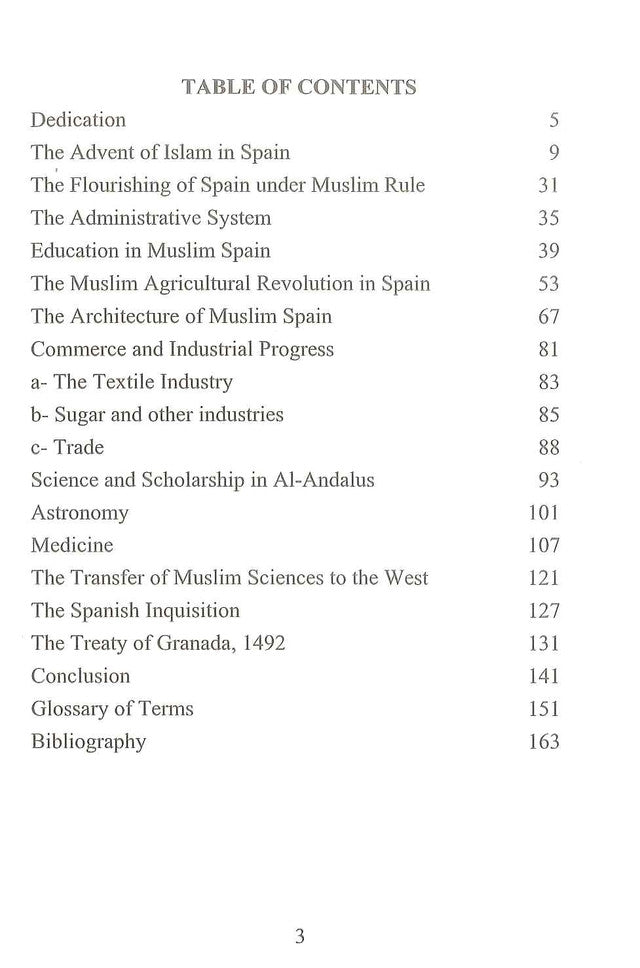
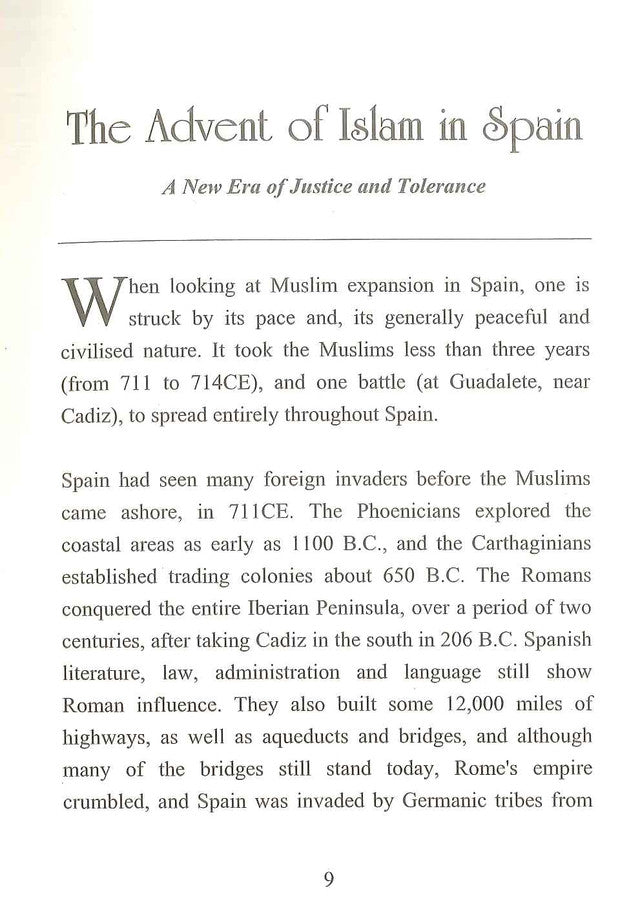
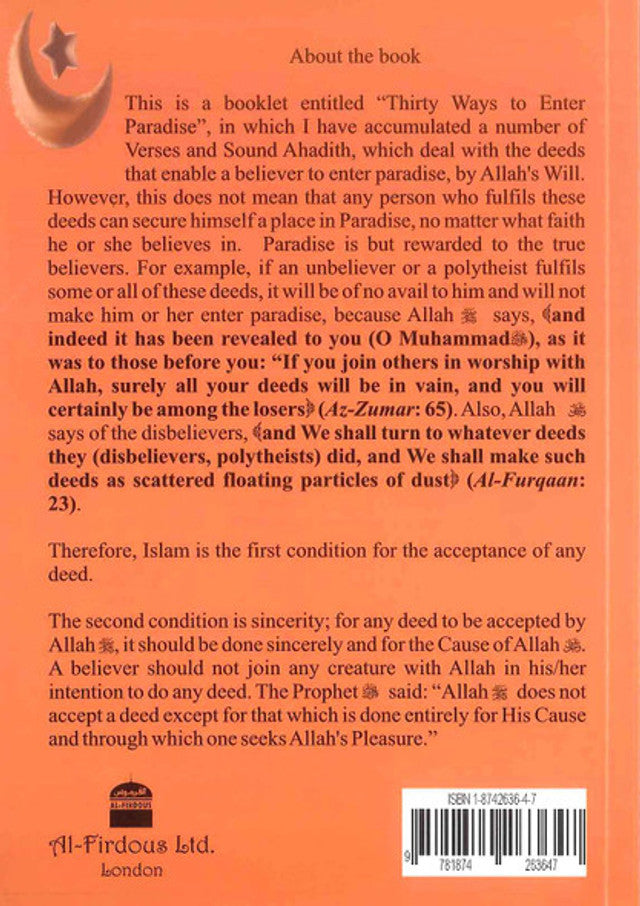
Collapsible content
Description of Book
Publisher
Al Firdous LTD
Author
- Dr. Ali Muhammad As-Salabi
Sample Pages - Content
Muslim Civilisation in Spain The Forgotten Legacy Omar KassirDedication TABLE OF CONTENTS The Advent of Islam in Spain The Flourishing of Spain under Muslim Rule The Administrative System Education in Muslim Spain The Muslim Agricultural Revolution in Spain The Architecture of Muslim Spain 5 9 31 35 39 53 67 Commerce and Industrial Progress a- The Textile Industry 81 83 b- Sugar and other industries c- Trade 85 88 Science and Scholarship in Al-Andalus 93 Astronomy 101 Medicine 107 The Transfer of Muslim Sciences to the West 121 The Spanish Inquisition 127 The Treaty of Granada, 1492 131 Conclusion 141 Glossary of Terms 151 Bibliography 163 3The Advent of Islam in Spain A New Era of Justice and Tolerance W Then looking at Muslim expansion in Spain, one is struck by its pace and, its generally peaceful and civilised nature. It took the Muslims less than three years (from 711 to 714CE), and one battle (at Guadalete, near Cadiz), to spread entirely throughout Spain. Spain had seen many foreign invaders before the Muslims came ashore, in 711CE. The Phoenicians explored the coastal areas as early as 1100 B.C., and the Carthaginians established trading colonies about 650 B.C. The Romans conquered the entire Iberian Peninsula, over a period of two centuries, after taking Cadiz in the south in 206 B.C. Spanish literature, law, administration and language still show Roman influence. They also built some 12,000 miles of highways, as well as aqueducts and bridges, and although many of the bridges still stand today, Rome's empire crumbled, and Spain was invaded by Germanic tribes from 9About the book This is a booklet entitled "Thirty Ways to Enter Paradise", in which I have accumulated a number of Verses and Sound Ahadith, which deal with the deeds that enable a believer to enter paradise, by Allah's Will. However, this does not mean that any person who fulfils these deeds can secure himself a place in Paradise, no matter what faith he or she believes in. Paradise is but rewarded to the true believers. For example, if an unbeliever or a polytheist fulfils some or all of these deeds, it will be of no avail to him and will not make him or her enter paradise, because Allah says, and indeed it has been revealed to you (O Muhammad), as it was to those before you: "If you join others in worship with Allah, surely all your deeds will be in vain, and you will certainly be among the losers) (Az-Zumar: 65). Also, Allah says of the disbelievers, and We shall turn to whatever deeds they (disbelievers, polytheists) did, and We shall make such deeds as scattered floating particles of dust) (Al-Furqaan: 23). Therefore, Islam is the first condition for the acceptance of any deed. The second condition is sincerity; for any deed to be accepted by Allah, it should be done sincerely and for the Cause of Allah. A believer should not join any creature with Allah in his/her intention to do any deed. The Prophet said: "Allah does not accept a deed except for that which is done entirely for His Cause and through which one seeks Allah's Pleasure." Al-Firdous Ltd. London ISBN 1-8742636-4-7 781874 253647
Who is Omar Kassir?
Omar Kassir is a prominent figure known for his expertise in various fields, including Islamic studies, literature, and political analysis. He is recognized for his thought-provoking insights on modern issues, often blending traditional knowledge with contemporary perspectives. Kassir’s work covers a wide range of topics, from Islamic philosophy to social and political matters in the Arab world, making him an influential voice in the discourse surrounding Islamic thought and modern challenges.

